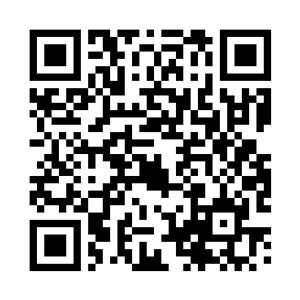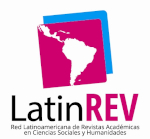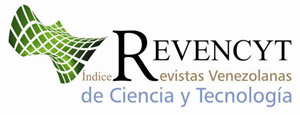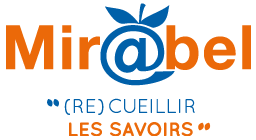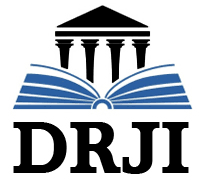Transforming educational management: information and communication technologies are changing the landscape
Keywords:
information and communication technologies, educational management, digital divideAbstract
This research analyzes how Information and Communication Technologies (ICT) are transforming educational management. The methodology was oriented towards a qualitative approach, employing a phenomenological design to explore the experiences and perceptions of educational actors regarding the effectiveness and use of ICT. The study was conducted in five educational institutions in the Province of Manabí, Ecuador. Semi-structured interviews were carried out with a total of ten participants, including principals, coordinators, and teachers, and an analysis of institutional documents was conducted. The results revealed that ICT has significantly improved administrative management and the quality of the educational process by facilitating greater interactivity and personalized learning. However, challenges were also identified, such as the lack of adequate training for staff and the digital divide, which disproportionately affects institutions in disadvantaged areas. Document analysis complemented the information obtained through the interviews, corroborating the implementation and regulation of ICT in educational practices. This research provides a comprehensive view of how ICT influences educational management, highlighting the need for effective strategies to overcome obstacles and maximize the benefits of these technologies in different educational contexts.
Downloads
References
Anderson, T. (2008). The Theory and Practice of Online Learning. Athabasca University Press.
Area, M. y Adell, J. (2009). E-learning: Enseñar y aprender en espacios virtuales. Editorial Síntesis.
Bates, A. W. (2015). Teaching in a Digital Age: Guidelines for Designing Teaching and Learning. Tony Bates Associates Ltd.
Cabero, J. y Marín, V. (2014). La alfabetización digital del profesorado: un factor clave para la integración de las TIC en los procesos de enseñanza y aprendizaje. Revista de Educación a Distancia (RED).
Chen, C. M., & Hwang, G. J. (2018). A practical guide to enhance student engagement through mobile learning. Springer.
Collins, A., & Halverson, R. (2018). Rethinking Education in the Age of Technology: The Digital Revolution and Schooling in America. Teachers College Press.
Cox, M. J., & Marshall, G. (2007). What factors support or hinder technology integration in primary and secondary schools? In International handbook of information technology in primary and secondary education. 337-350.
Ertmer, P. A., Ottenbreit-Leftwich, A., Reardon, R., & Robbins, K. (2012). Teacher technology change: How knowledge, confidence, beliefs, and culture interact. Journal of Research on Technology in Education, 44(3), 255-284. https://doi.org/10.1080/15391523.2012.10782576
Garrison, D. R., & Anderson, T. (2003). E-Learning in the 21st Century: A Framework for Research and Practice. Routledge.
Gisbert, M. (2013). Competencias digitales en el ámbito educativo. Revista de Educación, 362, 197-222.
Hattie, J. (2009). Visible learning: A synthesis of over 800 meta-analyses relating to achievement. Routledge.
Hew, K. F., & Brush, T. (2007). Integrating technology into K-12 teaching and learning: Current knowledge gaps and recommendations for future research. Educational Technology Research and Development, 55(3), 223-252. https://doi.org/10.1007/s11423-007-9037-8
Isusqui, J. C. P., Villavicencio, I. E. S., Inga, C. V., Gutiérrez, H. O. C., Díaz, B. L. G., & Amaya, K. L. A. (2023, August 11). La Inteligencia Artificial al servicio de la gestión y la implementación en la educación. https://doi.org/10.31219/osf.io/z2y7c
Marín, J. (2023). Arquitectura del éxito educativo: redefiniendo la evaluación institucional. Revista En Prospectiva. Universidad Yacambú, 4(2), 46–54. https://revista.uny.edu.ve/ojs/index.php/en-prospectiva/article/view/362
Marín, J. (2006). Perspectiva administrativa de la organización escolar en educación básica. Fondo Editorial IPASME.
Moreira., L. (2021). Tecnologías de la información y la comunicación: uso en la gestión educacional. Revista Educación en Contexto. 7(13). 33-49. https://educacionencontexto.net/journal/index.php/una/article/view/146
Mouza, C. (2009). Learning with technology: The impact of technology integration on student learning. In Handbook of research on educational communications and technology 99-108.
Pelgrum, W. J. (2001). "Obstacles to the Integration of ICT in Education: Results from a Worldwide Educational Assessment." Computers & Education, 37(2), 163-178.
Principal, M., & Orellana, A. (2024). Inteligencia artificial en la enseñanza-aprendizaje universitaria: una revisión semi-sistemática. EVSOS, 2(4), 23–46. https://doi.org/10.57175/evsos.v2i4.157
Ríos, M. y Rodríguez, M. (2010). Transversalidad en entornos virtuales de aprendizaje: una experiencia en los Estudios Universitarios Supervisados de la Universidad Central de Venezuela. https://n9.cl/k76hw
Ríos, M., y Rodríguez, M. (2017). Comunicación asincrónica. Experiencias en ambientes virtuales de pre y posgrado. Revista Proyección. Edición Especial. 4(12), 40, 48. http://www.sirius.une.edu.ve
Rodríguez, M.G. (2020). Intersubjetividad dialógica en el acompañamiento pedagógico del docente instructor universitario. Areté. Revista Digital del Doctorado en Educación de la Universidad Central de Venezuela. 6(11), 217–237. http://saber.ucv.ve/ojs/index.php/rev_arete/article/view/18519
Salinas, J. (2004). Innovación docente y uso de las TIC en la enseñanza universitaria. RUSC. Revista de Universidad y Sociedad del Conocimiento, 1(1).
Schmid, E., C., M., & Hall, G. E. (2014). Personalizing learning with technology: How emerging tools are supporting customized learning pathways. Journal of Educational Technology & Society, 17(3), 59-71. https://www.jstor.org/stable/23612658
Selwyn, N. (2011). Education and Technology: Key Issues and Debates. Continuum International Publishing Group.
Warschauer, M. (2004). Technology and Social Inclusion: Rethinking the Digital Divide. MIT Press.
Published
How to Cite
Issue
Section
License
Copyright (c) 2024 Limber Reinaldo Moreira Zambrano, Maria Gorety Rodríguez Vieira

This work is licensed under a Creative Commons Attribution-NonCommercial-ShareAlike 4.0 International License.





